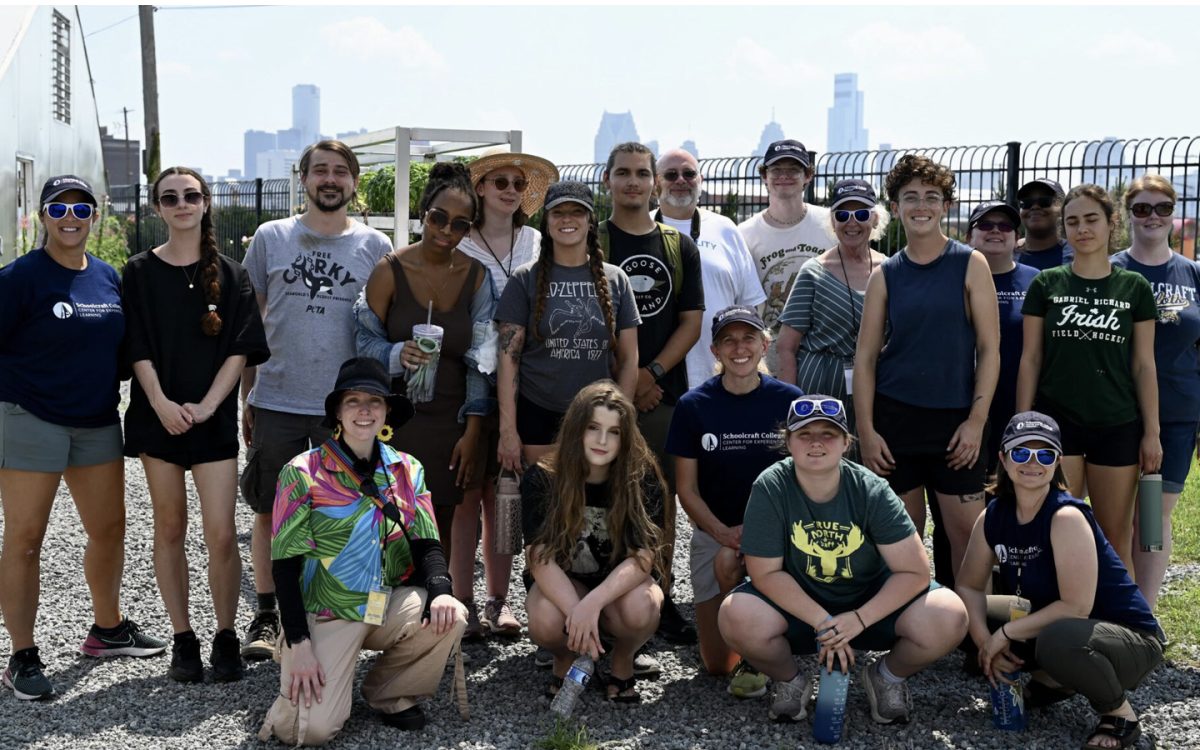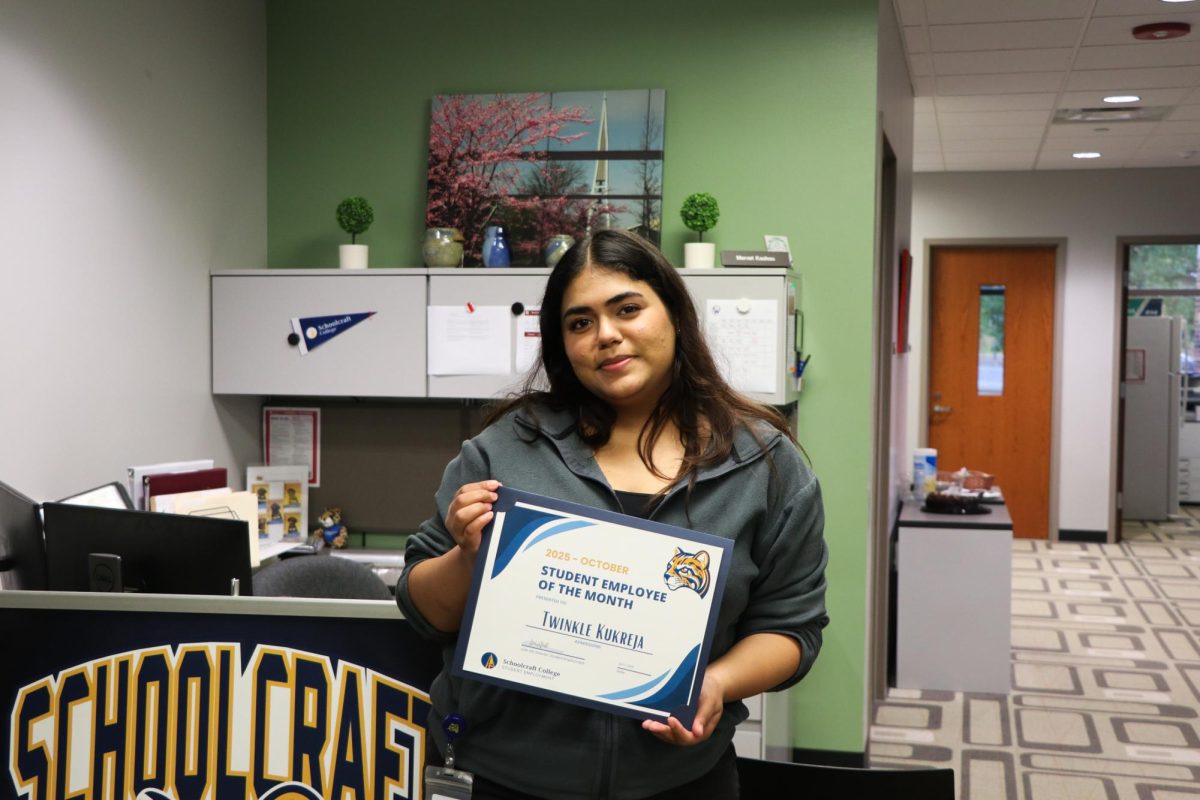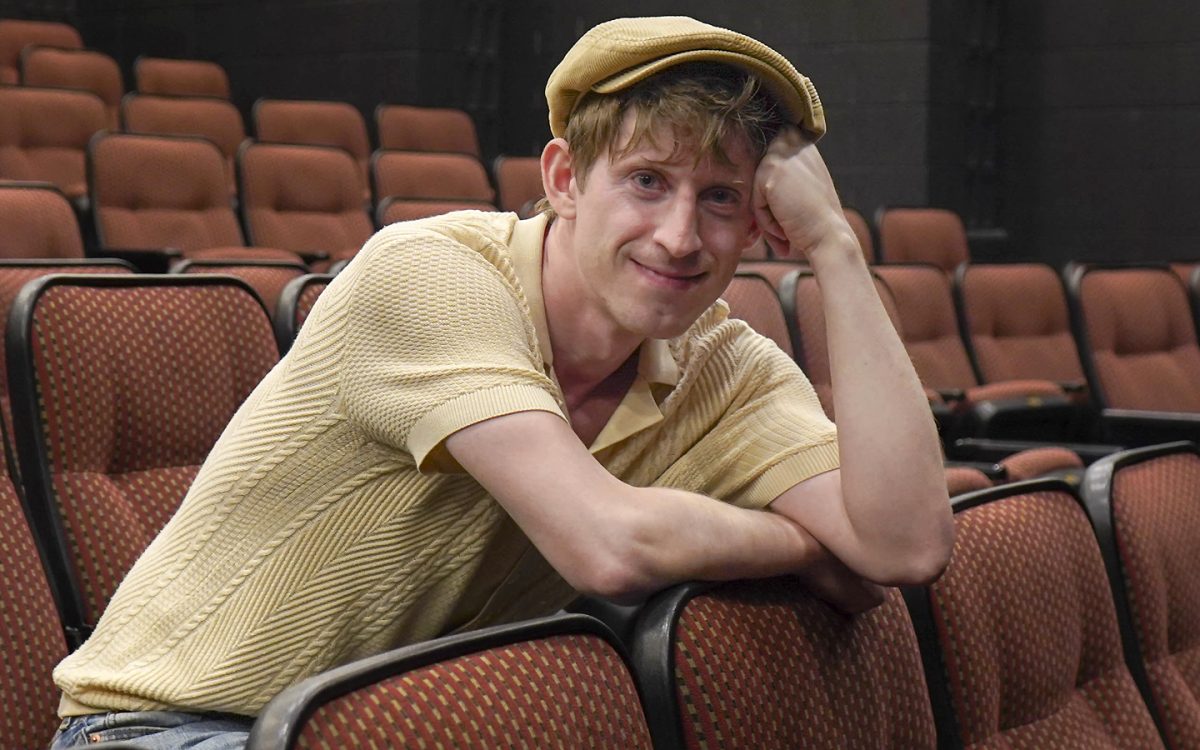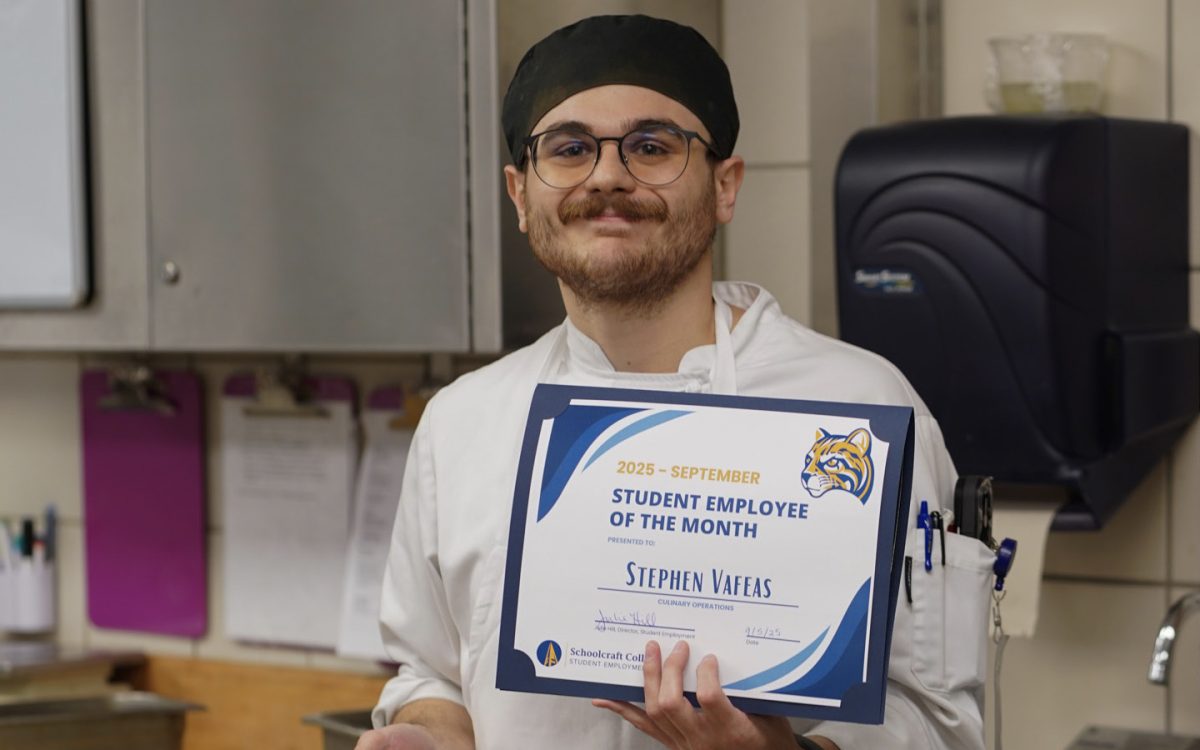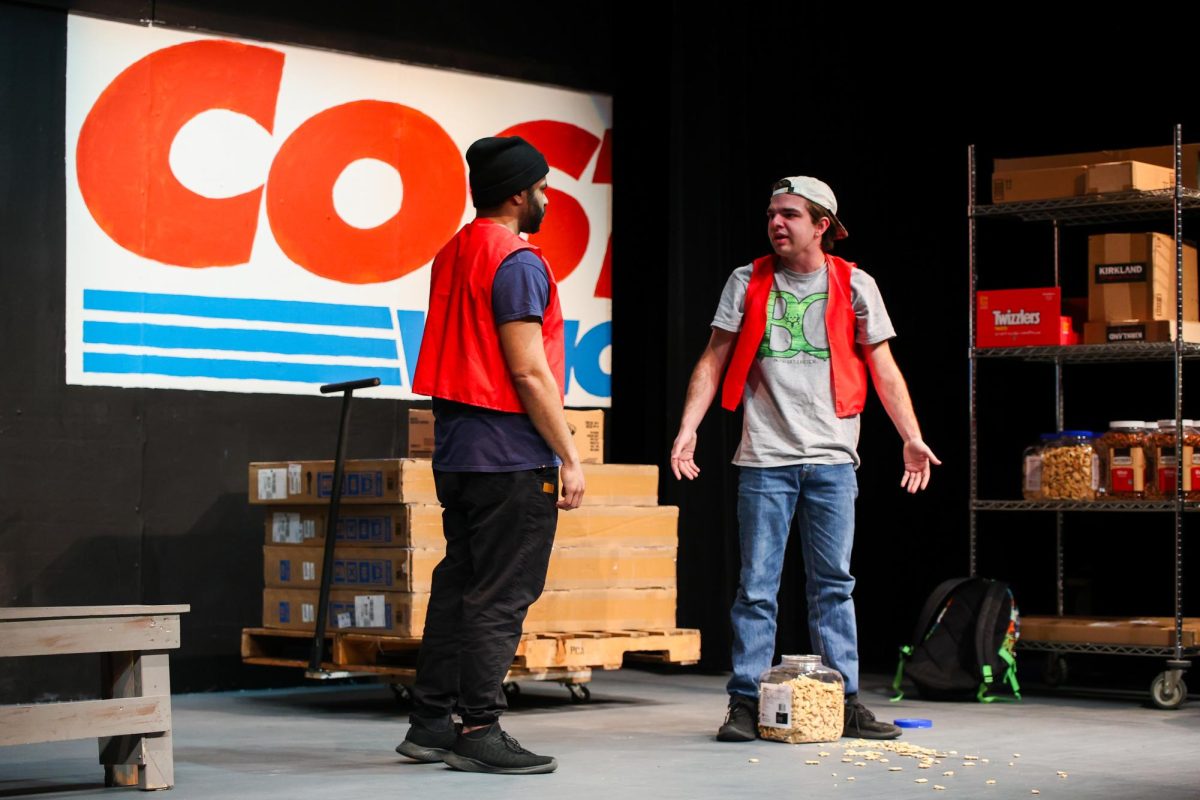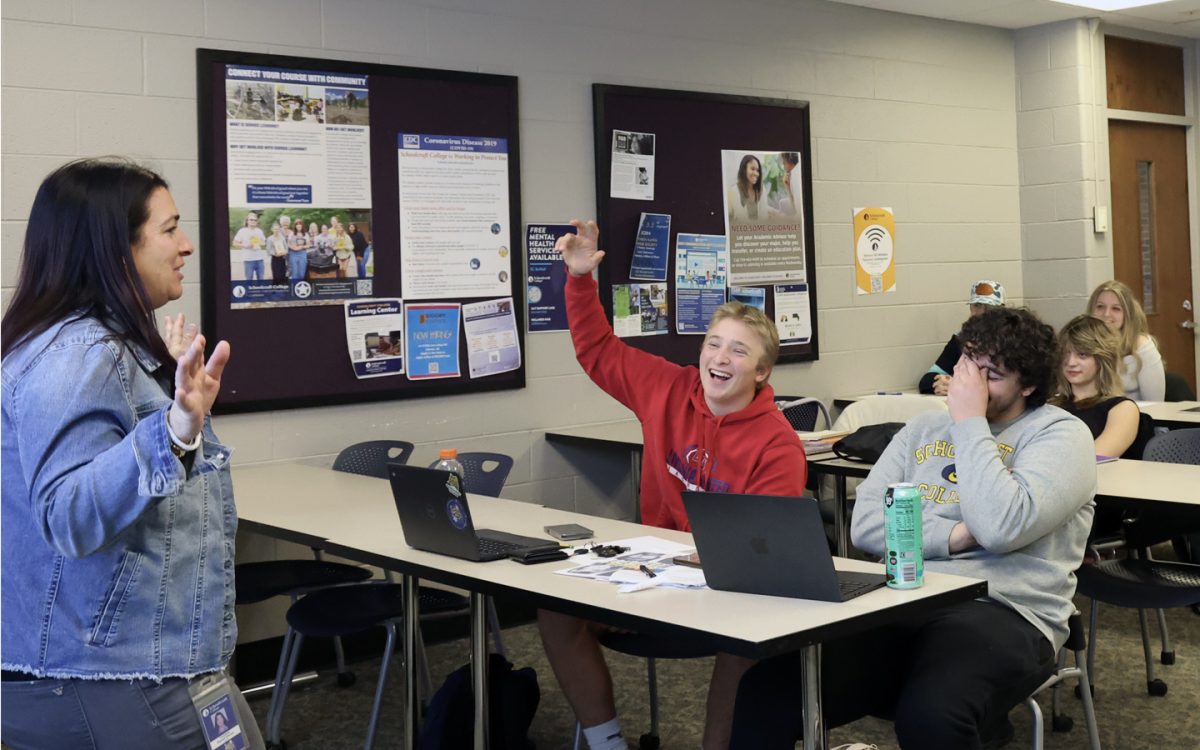While most students were relishing the last few weeks of summer, about 15 students took part in a newly created and educationally enriching summer seminar called “Embracing Detroit and its Environments.” Sponsored by the Schoolcraft’s Center of Experiential Learning, this weeklong summer program in August brought together Schoolcraft professors, students and community partners where they learned about Detroit through a combination of lectures and field trips into the city.
To be a part of this program, students needed to apply and be accepted to participate. Spots were limited.
Manager of the Center of Experiential Learning program, Errin Stegich, found the smaller size group to be valuable, “I would like to keep the program small. I think we had just the right amount at 15 because it was a very intimate experience,” said Stegich.
Stegich also added that on top of all of these bonuses it’s a unique experience. “You walk away from the experience, knowing a little bit more about yourself and who you are and what you understand.”
Participants in the program experienced a hybrid of learning in the classroom and in the city, exploring various topics such as urban renewal, poetry and the impact of invasive species on biodiversity.
Throughout the week, professors from various departments across campus gave presentations to the fellows. The first two were given by Anthropology Professor Jessica Worden-Jones and English Professor Kimberly Masterson. Worden-Jones gave a demonstration on prejudices. She passed out bags filled with objects and asked students to make assumptions about the person they found. Warden-Jones eventually revealed that the objects all belonged to the same person. This exercise illustrated that everyone has biases and predispositions, but people need to recognize them so they can combat it.
Masterson gave a presentation on Black Bottom and Paradise Valley. It has an unsettling history that is often neglected in today’s education system. It also highlighted the theme of “embracing Detroit and its environments” by showing a history often overshadowed by Lafayette Park that now stands in its place.
Professors Holly Greiner-Hallman, Melissa Gury and Samer Hariri gave presentations on urban ecology and ecosystem services, conservation biology and Detroit’s river systems. These lectures were centered around the environmental aspects instead of history like the previous in class presentations which focused on history.
After time in the classroom, the fellows travelled the following days to Detroit and engaged in active, hands-on experiences.
First stop was Lafayette Park where a Henry Ford Community College professor Virginia Stanard gave a tour of the neighborhood. During the tour, Stanard highlighted the design of the Park, including that there were no roads in the middle of the neighborhood to make it safer for children and the multiple community spots throughout the buildings.
Another stop was the Charles H. Wright Museum of African American History where fellows were transported back in time through detailed displays of African American history. Following the theme of environment, the fellows went to Belle Isle where they explored the aquarium, conservatory, and nature center. Here they were able to see the conservation status of many of the aquatic life in the aquarium. The conservatory offered a variety of different plants that students might not normally be exposed to. “The Belle Isle tour was special because within the hustle and bustle of the Motor City, we have our own little slice of nature to ground us back to our roots,” explains Samantha Bliem, a participant in the summer fellowship program.
After the stop at Bell Isle, the fellows visited Keep Growing Detroit. Here students were introduced to two large greenhouses growing a multitude of plants. They were given a small tour of the property, shown to the nursery green house, the outdoor fields, and the small plots for the workers who want to plant some of their more traditional plants. Fellows had the chance to pick cherry tomatoes and beans that were ready while some sorted the crops so that they could be packaged and sold at Eastern Market.
On the final day of the program the fellows were treated to a ferry boat tour around the Detroit River, diving into the rich history of both the Detroit side and the Canadian side. At the conclusion of the tour a luncheon was provided and fellows were asked to give a presentation on their experiences in the seminar. Students were encouraged to journal about their experiences throughout the fellowship, given time during the seminar to write how they were feeling and recap what they learned. Some showed off their journals while others just discussed their opinions on what happened during the fellowship. At the completion of the weeklong seminar, those who participated in the fellowship program were given a certificate of completion as well as a stipend and a badge that they can put on their resumes and LinkedIn profiles.
“I enjoyed gathering a better understanding and appreciation for black culture as a result of our classroom adventures, and I hope to utilize the lessons I learned to create a better future for those whose voices are silenced.” said fellowship participant Abigail Adams.
Students interested in learning more about this program or other programs offered by the Schoolcraft’s Center for Experiential Learning (CEL) should contact Errin Stegich at [email protected].



